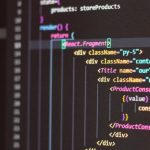Advancements in robotics are beginning to reshape personalized medicine, with Multiply Labs Inc. leveraging automation to address the challenge of producing cell therapies at scale. As precision treatments become more widespread, manufacturers are confronted with the high costs and complexities of tailoring therapies for individual patients. Through its new automated solutions, Multiply Labs aims to make cellular therapies both more affordable and accessible—ushering in potential changes to how healthcare organizations manage production standards, contamination risks, and regulatory requirements.
Independent coverage from recent years highlighted persistent hurdles in cell therapy manufacturing, such as elevated costs, lengthy production times, and susceptibility to contamination via manual operations. Solutions often focused on incremental automation—typically confined to one or two steps of the process. The latest development by Multiply Labs, however, automates the full manufacturing cycle using collaborative robots and imitation learning. This approach addresses bottlenecks, reduces human error, and sets a new benchmark in process fidelity and cost efficiency that was not previously achieved through partial automation.
How Do Multiply Labs’ UR Cobots Handle Personalized Therapy Production?
Multiply Labs employs Universal Robots’ six-axis collaborative robot arms within its modular biomanufacturing cluster, designed to automate the end-to-end production of individualized cell therapies. Unlike conventional batch processes, this technology manages patient-specific doses, a necessity for conditions like lymphoma and leukemia. As a result, Multiply Labs claims a 74% reduction in production costs, presenting significant savings for treatments currently priced as high as $2 million per patient.
What Role Does Imitation Learning Play in Automation?
A distinguishing aspect of Multiply Labs’ system is its reliance on imitation learning, where robots are trained via video-recorded tasks previously performed by laboratory scientists. According to Multiply Labs CEO Fred Parietti,
“We then feed this data to the robots, and the robots learn to effectively replicate what scientists were doing in the lab, just more efficiently, more repeatably, 24/7, and in parallel.”
This method enables robotic systems to mirror existing approved protocols, facilitating regulatory compliance while minimizing the need for expensive re-approval processes.
What Are the Implications for Space, Quality, and Contamination?
Multiply Labs’ robotic process is reported to substantially improve space efficiency, enabling much higher patient throughput in the same cleanroom space compared to manual methods. Robotic handling has also demonstrated improved sterility, as clinical studies observed a notable absence of contamination events—an ongoing issue in manual production. Nadia Kreciglowa, head of robotics at Multiply Labs, explained the company’s selection of Universal Robots by stating,
“UR was chosen due to their crucial six-axis capabilities, unrivaled force mode for delicate handling, seamless software integration, robust community support, and cleanroom compatibility.”
Looking at broader industry implications, Multiply Labs’ platform is already operational in several major pharmaceutical settings and has been evaluated in collaboration with researchers from institutions such as Stanford University and UCSF. As regulatory landscapes emphasize reproducibility and adherence to approved procedures, imitation learning provides a solution for new entrants seeking to automate existing therapies without restarting complex approval processes. Readers considering automation for pharmaceutical production can glean that advances not only address cost and space utilization but also help reduce human error and risk of contamination, aspects central to patient safety and industrial scalability.










